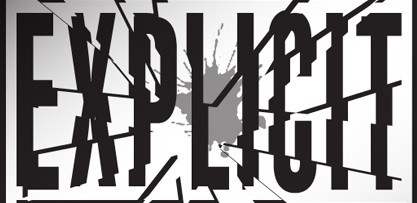Ross Mullen ¦ Contributing Writer
Are we wrong to be offended upon hearing certain words or phrases? In 2013, swear words have become a constant element of everyday conversation. “Fuck” no longer retains the same disdain or disgust it once did, “bitch” and “bastard” now almost represent terms of endearment more so than ones of insult. In a modern society where taboos no longer hold the same power they once did, these words have become acceptable. However, I still find there is a line that shouldn’t be crossed when it comes to offensive words. A very prominent distinction exists between mere curse words aimed at nothing in particular and others which possess a much more sinister tone. Unfortunately, in the 21st century we’ve become numb to the effects these words can have, we fail to remember the potential power words can enjoy.
“Words are, of course, the most powerful drug used by mankind.” – Rudyard Kipling
Some would argue by not using these words, we attach a taboo. A word’s meaning is one chosen and developed by society, if it creates insult it is due to the meaning we have given it, not one it was born with. No single word is inherently offensive. However, that is exactly where the problem lies. Many words have already gained this ugly and blemished connotation and sadly, these repulsive meanings can not merely be shaken off. They represent the precise implication those affected wish to avoid. They are not simple swear words, they offend people because they go to the very core of someone’s being, they degrade and demean them on a level that should never be reached.
While I despise these words and feel their place in society should be condemned to history, it is impossible for me to demonstrate my point without reference to these downright derogatory words. They are words which are used to describe those with a disability, whether that is mental or physical, words used to describe people of a certain ethnic or racial background, words that describe people based on their sexuality. In essence, words that debase someone’s whole sense of being.
Many of these words are used every day and sadly I cannot claim complete innocence in this regard. They are casually thrown into conversation without guilt or shame. Even worse, some will claim it was only “banter,” or a “joke” and no one involved took any offence whatsoever anyway. They are deeply mistaken. We are unaware of the hurt these phrases can cause to those affected, even if not directly aimed at them. Someone may have a brother with a mental disability and doesn’t take too kindly to the idea of them, or anyone else, being referred to as a “retard” or a “downy.” Someone may have a gay uncle and would prefer if you didn’t call people “faggots.” Words, even if not used in a venomous fashion, can hurt people. A fact that is far too easily forgotten in today’s world.
The aim of this piece isn’t to vent about discrimination, it’s to try and highlight the power that exists through speech. The beauty of language is the ability to describe and convey, to express and illustrate, to recount and portray. Not to offend. The worst feature of these disparaging words is the complete lack of necessity. They have no purpose in society but regrettably, they still hold a place.
I don’t hope for a world where nothing can be said for fear of causing offence, I just ask that people be more wary when using words of this kind
Why, then, do some words cause such grave offence while others can be effortlessly shrugged off? Many of those words now deemed to be derogatory did not have the same meaning when first spoken. For example, “retardation” was first used as medical term for those with a learning disability. However, the actual and intended meaning is irrelevant, a word is only as good as its usage. The problem surrounds what people mean when they use it. It has a become a casual description of something flawed or negative. Any use of the word, even if used as slang with no intention of being offensive is hurtful, as it will always be associated with those with disabilities. That’s why these words should not be used, in any context; the intention is almost immaterial as for those concerned, the association will remain in their mind.
These words are pre-emptive dismissals of these people, they de-humanize them and mock them. Discrimination is already a problem so rife in society that we do not need to perpetuate it through mere language and words. These words have no role to play in modern society, their use is completely and undoubtedly unnecessary. However, we control their existence. Their life only lasts as long as we continue to use them. I don’t hope for a world where nothing can be said for fear of causing offence, I just ask that people be more wary when using words of this kind. You can never know how it affects someone. Never disregard the power of words.







